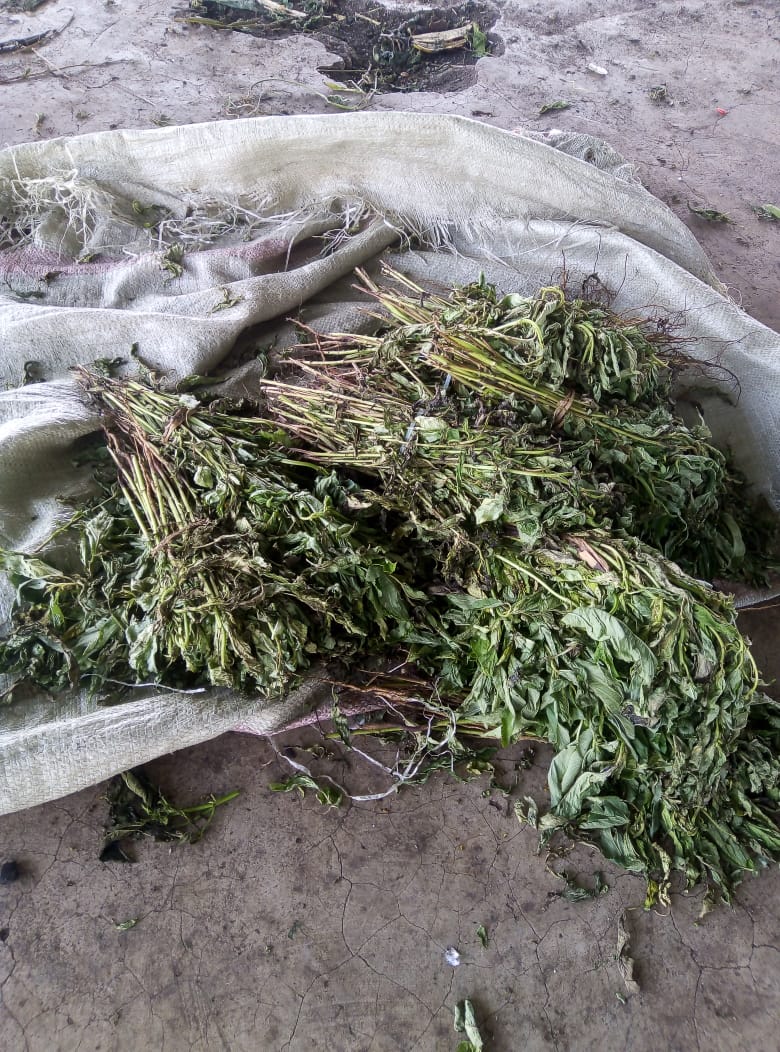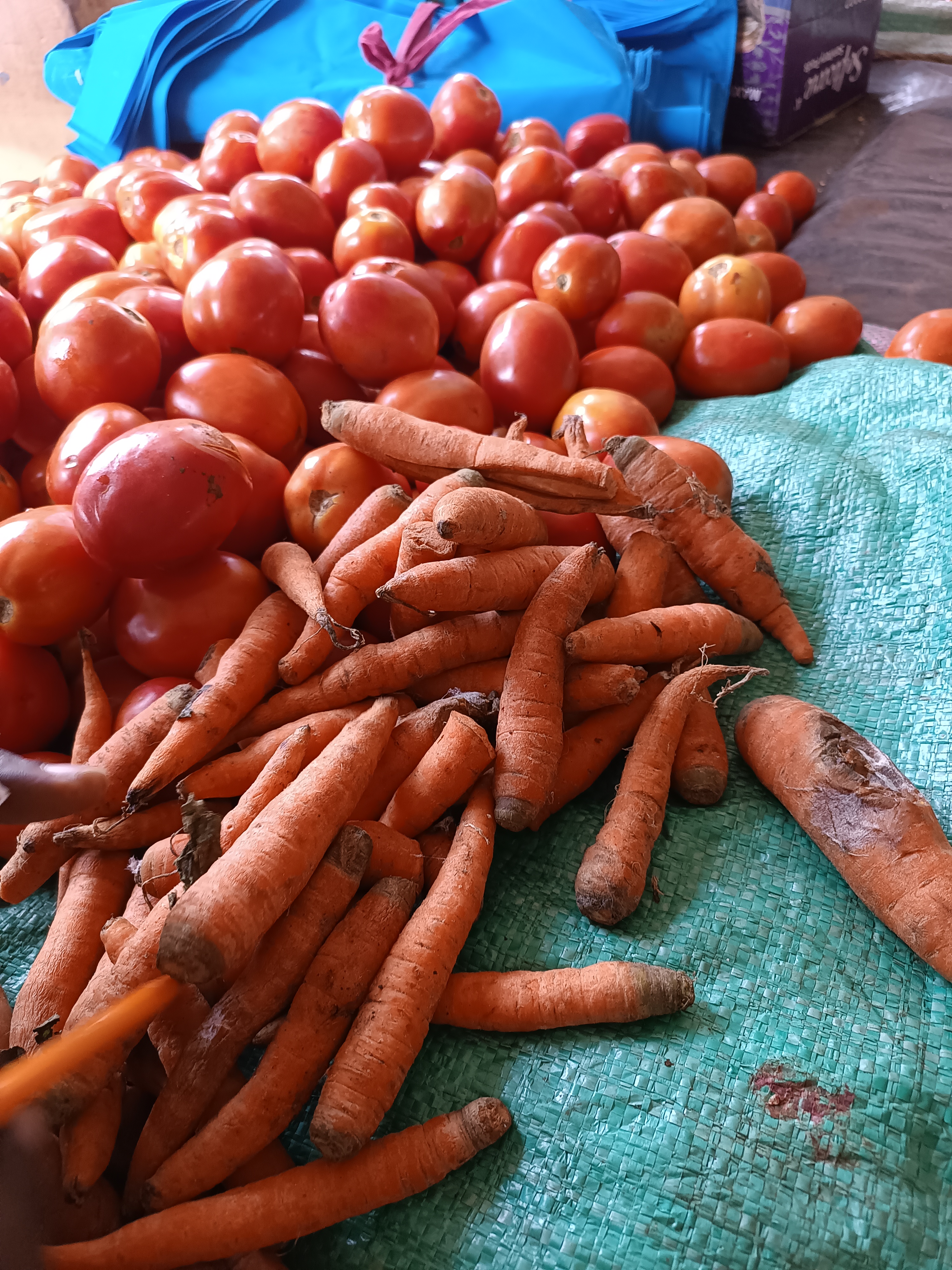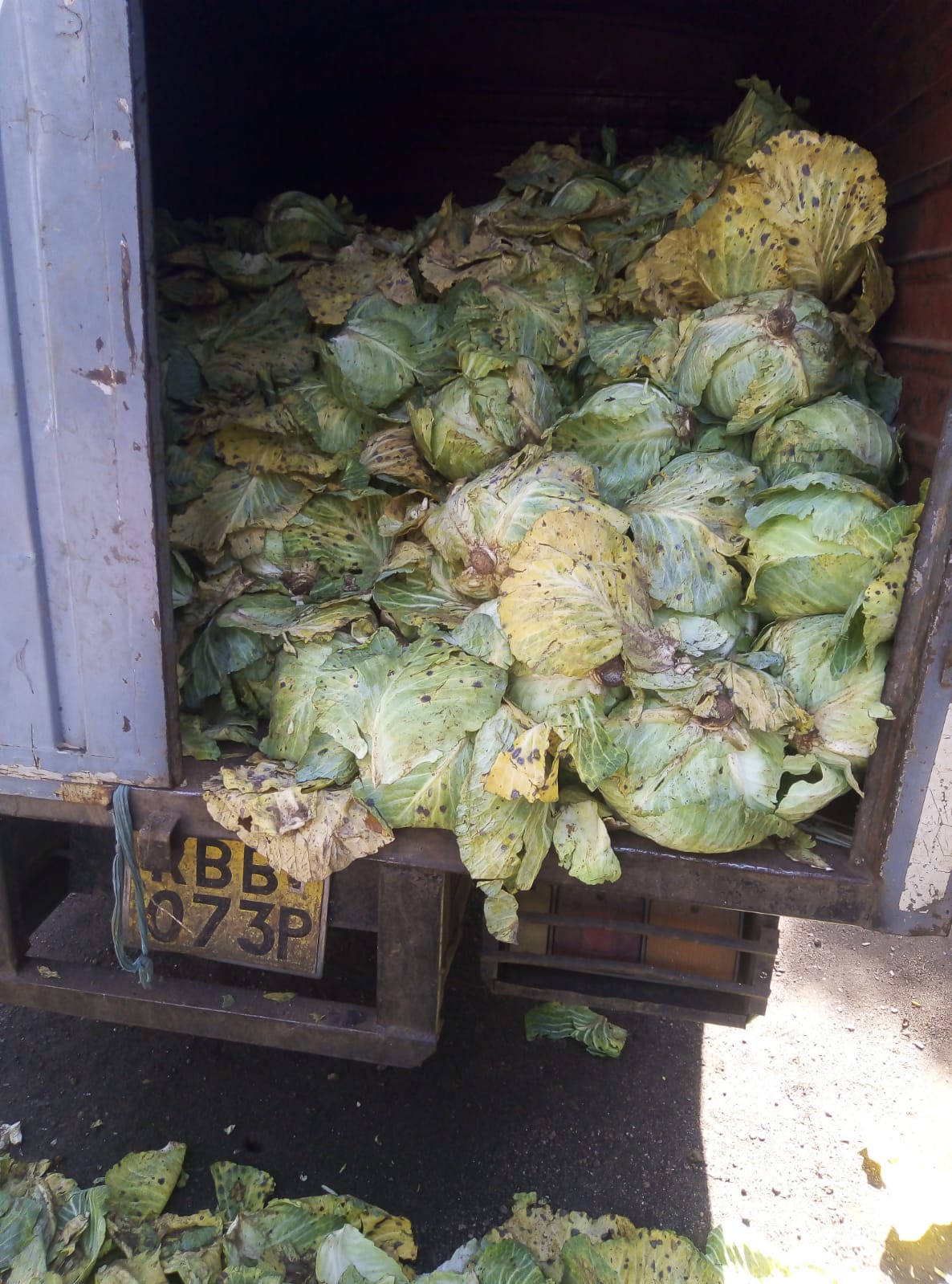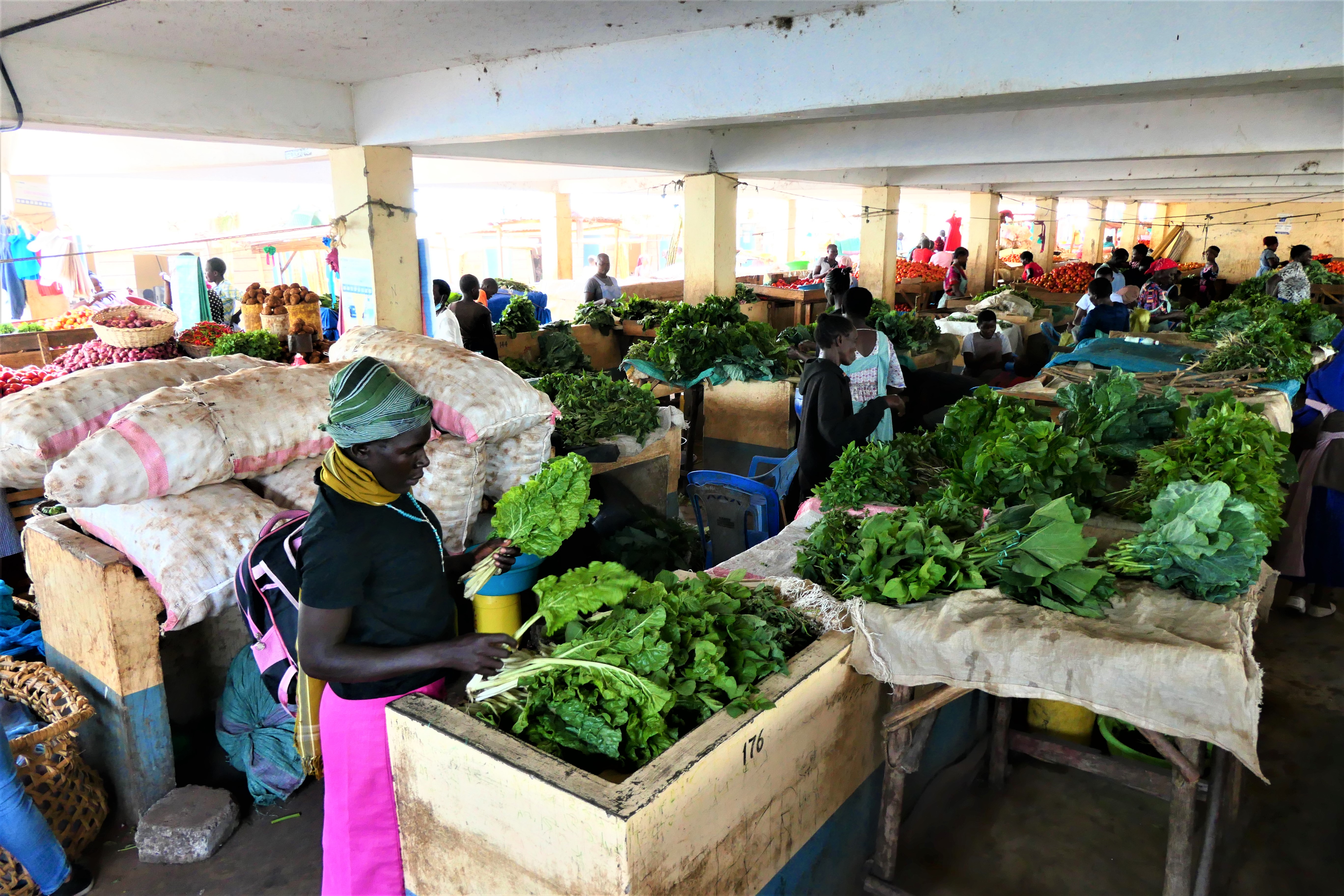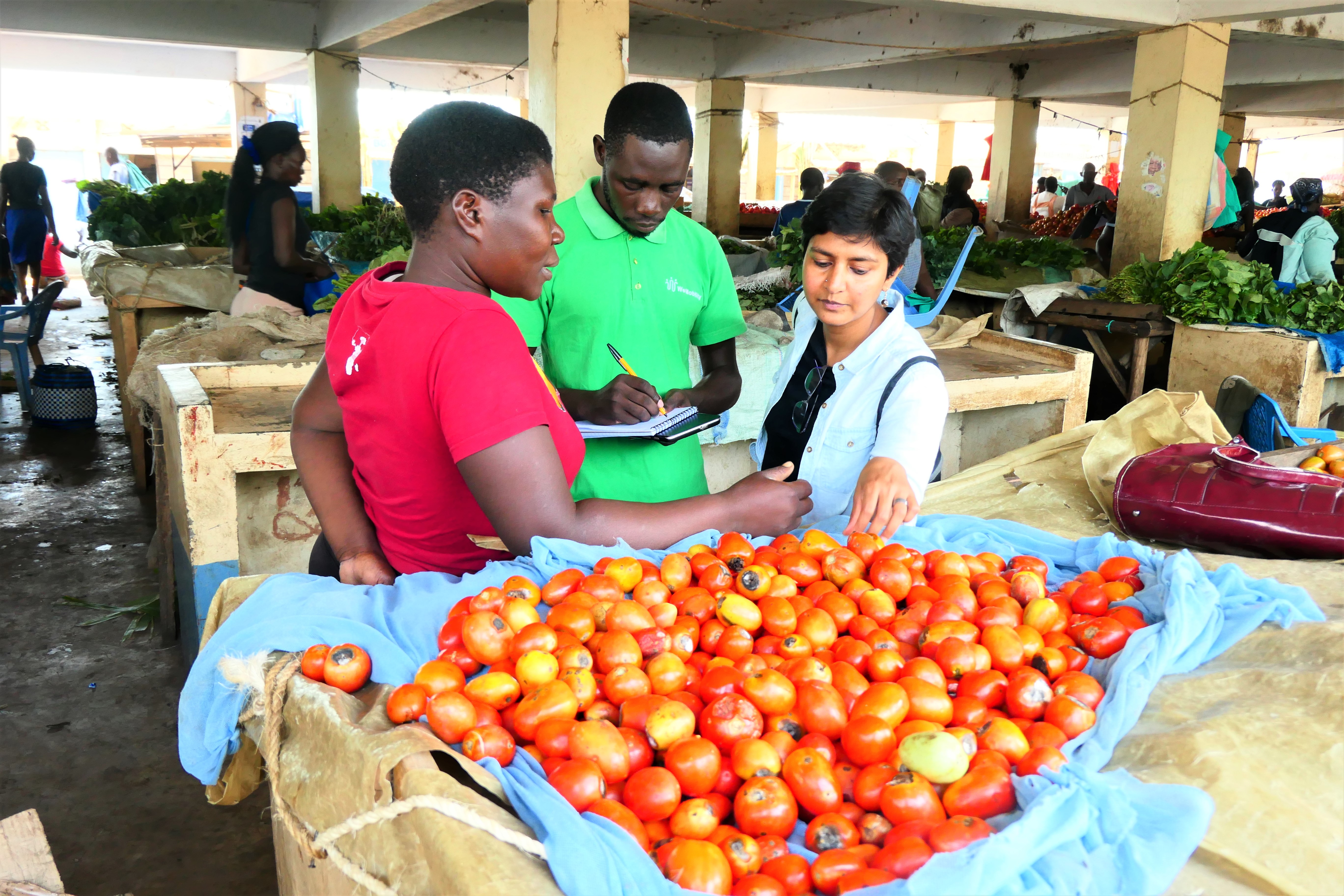A new cooling initiative is poised to change the way food is stored and traded in Homabay County, Kenya, as the UNEP Copenhagen Climate Centre partners with local stakeholders on an innovative cold room project. The venture, a part of the EU-Horizon SESA project, not only seeks to curb food waste and related emissions but also aims to improve livelihoods of smallholder traders and wholesalers, which are predominantly women.
A significant 31 percent of food never reaches consumers, resulting in income loss for traders and increased greenhouse gas emissions.
According to the UN Food and Agriculture Organization, an estimated 14 percent of the total food produced is lost after it is harvested and before it reaches the market, while UNEPs Food Waste Report 2021 shows that a further 17 per cent ends up being wasted at retail level. In total food loss and waste account for 8-10 percent of global greenhouse gas emissions.
Lack of efficient cooling infrastructure further exacerbates the issue, particularly in more remote regions like Mbita and Kisegi in Homabay.
A holistic solution tackling food waste and emissions
In response to these challenges, UNEP Copenhagen Climate Centre has teamed up with private partner WE!Hub Victoria Limited (WeTu) and technology partner SelfChill, supported by KFW Be Cool Project. The initiative focuses on a comprehensive cold storage solution that encompasses sustainable production and operation.
The heart of this initiative is an off-grid solar-powered modular cold room, featuring low GWP refrigerants that reduce emissions by nearly 100%. With a capacity of 20m3 and the ability to store 500 kg of food daily, the cold room employs ice thermal storage to maintain cooling even during periods without sunlight.
The project also envisions future upgrades and improvements to the sustainability of the cold rooms using local building and insulation materials, paving the way for further technological innovation and efficiency in the cooling market in Sub-Saharan Africa.
Local Context and Positive Impact
In July 2023, the project conducted a thorough baseline and market assessment with traders and wholesalers at the Mbita Market in Homabay to understand trading practices, type and volume of produce being wasted, rationale and usage of a cold room, and to assess and quantify the volume of food waste in the market, and the food waste chain.
The findings underscored a unanimous need for cold storage and a willingness to embrace the new solution. This sentiment was reiterated during a Focus Group Discussion involving the Market Committee and representatives of the Sub-County Government.
The preliminary findings highlight a strong interest in the coldstorage, particularly for produce with shorter shelf lives such as leafy vegetables, tomatoes, papayas, bell peppers, cabbages and, avocados, all of which are among the most frequently traded items.
Presently, traders resort to suboptimal storage methods, resulting in substantial income loss due to spoiled produce and lower prices. The upcoming pilot cold room in Mbita market, set to launch in September 2023, promises to be a game-changer.
Toward a Sustainable Future
The cold room’s launch marks the first step. UNEP Copenhagen Climate Centre, WeTu and SelfChill are developing a business model, which will be tested and refined in the coming months. The team will pilot a pay-per-service model for use of the cold room, where end-users pay-per use basis only without any upfront costs. This approach is being co-created along with the end-users.
In parallel, focus is also on developing a scale-up concept note to enable more such cold rooms and cooling solutions for vegetable and fruit produce, and for other types of fresh produce as well.
By combining innovative technology with local engagement, the initiative has the potential to alleviate food waste, strengthen livelihoods, reduce emissions, and create a more sustainable future for people in Mbita and Homabay.
